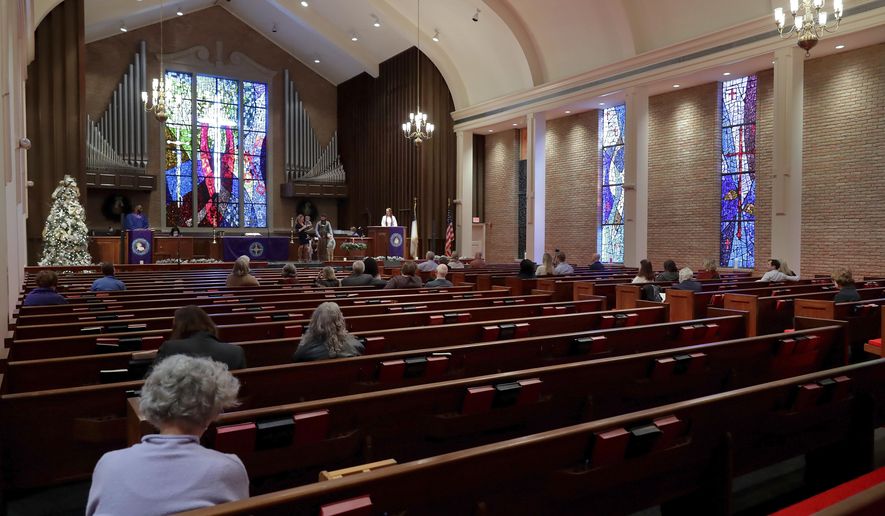OPINION:
As the world wearily embarks on yet another new year, angst chaos, and uncertainty have become forlorn norms. The profusion of crises before us are no doubt daunting, with people struggling to grapple with and process the ever-changing political and cultural tides.
From inflation fears and financial struggles to confusion and anger as leaders continue to fail at curbing the COVID-19 pandemic, there’s no dearth of societal tension points.
And as a sapped populace forges on, another underlying and logic-defying trend is exacerbating the toxicity manifesting within individuals’ lives: a systematic purge of all things Sacred.
At a time when the populace is so desperately searching for relief and meaning — when drug overdoses, suicides and mental anguish are at their worst — some seem obsessed with dismantling faith. Others have a less caustic, yet equally disturbing apathy toward the divine.
It’s an abject travesty to watch so many atheists, secularists and influential forces in popular entertainment and media undermine the only real solution to our woes. It’s akin to relying on a sugar pill to treat a dreadful infection, while ignoring the obtainable antibiotic that would immediately temper our festering septicemia.
Faith is our only hope, yet our cultural kingpins seem bent on replacing it with a soulless form of self-worship that is contorting and spinning us into hapless webs of confusion.
A new survey sheds light on the obvious reality that faith is the primary cornerstone of human wellbeing. A new Gallup poll found that routine churchgoers report the best mental health when compared to other American cohorts.
Overall, 44% of weekly churchgoers said they have “excellent” mental and emotional wellbeing. Notably, 28% of Democrats — the lowest among surveyed groups — said they have “excellent” mental and emotional health, compared to 42% of Republicans.
And this survey isn’t an outlier, as a separate study in 2019 from Barna and World Vision came to a similar conclusion. Among 15,369 young people aged 18 to 35, the research found that those who attend church weekly were significantly less likely to have anxiety.
Plus, in this latter study, the faithful were much more hopeful about the future. More than half — 51% — of practicing Christians said they had optimism for what’s to come compared to 34% of those without faith. Loneliness was also much more prevalent among the faithless.
If we’re exercising common sense, none of these statistics should be surprising. Church attendance connects us with a community and, beyond that, a higher power. The effects of both are individually and corporately transformational.
Rather than kowtowing to the diabolical cultural lie that every human is the arbiter of his or her truth, connection to a church body — and faith — centers us on the reality that we’re accountable to a creator and to fixed moral standards.
This creates a recognition that our purpose isn’t to satisfy the self, but to instead live out a more meaningful amalgam of “loving God” and “loving others.”
Even an atheist would be remiss to claim the Bible fails to instill hope in the hopeless and joy among those facing various struggles, yet that seems to be a lie with which far too many secularists have become comfortable.
Our culture today is desperately in need of hope, and yet faith — the conduit for that hope — is decreasing in its popularity and prevalence. Perhaps those advocating we “follow the science” will soon take their own advice and discover the verifiable reality that reliance on faith and truth is pivotal to human health.
• Billy Hallowell is a journalist, commentator and digital TV host who has covered thousands of faith and culture stories. He is the director of content and communications at Pure Flix and previously served as the senior editor at Faithwire and the former faith and culture editor at TheBlaze.




Please read our comment policy before commenting.